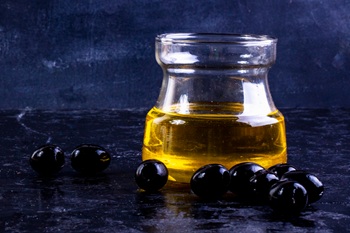Top 7 Foods for Muscle Growth
Building muscle is essential for overall health. It offers numerous benefits beyond strength alone. Muscle growth improves metabolism, supports bone health, and enhances functional fitness. However, it is a gradual process that requires consistent strength training and adequate nutrition. Incorporating the foods in this article into your diet can support muscle recovery, reduce inflammation, and promote growth.
The Importance of Building Muscles
Reduces the Risk of Metabolic Disease
Building muscle is more than just looking good; it’s about creating a healthier, more resilient body. One of the biggest benefits of increased muscle mass is a faster metabolism—muscle burns more calories at rest than fat, making it a powerful tool for weight management and reducing the risk of metabolic issues like diabetes (1).
Strong muscles also make everyday tasks like lifting, climbing stairs, or carrying groceries easier and less tiring. Building muscle enhances strength, endurance, and overall performance, particularly for athletes and fitness lovers. Additionally, increasing muscle mass improves body composition by lowering body fat, contributing to a leaner appearance and reducing the risk of chronic conditions like heart disease and hypertension (2).
Improves Posture and Prevents injury
Muscle building is an essential part of fitness and injury prevention. Strength training exercises with weights, resistance bands, or body weight stimulate muscle growth and improve bone density, promoting functional fitness and supporting an active lifestyle as one age. Strong muscles stabilise joints, improve posture, and reduce the risk of injuries, keeping the body aligned and balanced (3).
Improves Mood and Focus
Aside from physical benefits, building muscle can do wonders for your mental health. Strength training releases endorphins, the feel-good chemicals that reduce stress and improve your mood, making you energised and focused.
Incorporating muscle-building exercises into your fitness routine helps build a stronger body better equipped to handle life’s demands (4).
Foods That Build Muscles
Building muscle requires more than exercise—nutrition is equally important! Research has shown that essential nutrients like protein, carbohydrates, healthy fats, vitamins, and minerals are critical for muscle repair, recovery, and growth. Protein provides the amino acids necessary for muscle synthesis, while carbohydrates replenish glycogen stores to fuel workouts. Healthy fats, such as omega-3 fatty acids, reduce inflammation and support hormonal health (5). You can get better results by including these muscle-building foods in your diet.
Lean Meats
Lean meats are among the best high-quality protein sources, containing all essential amino acids for muscle repair. Chicken breast, a staple in fitness diets, is low in fat but rich in leucine an amino acid that helps stimulate muscle protein synthesis (6). Turkey offers similar benefits, along with zinc, which supports recovery and boosts immune function (7).
Also, read this;
Fish
Fish like salmon and tuna are rich in protein and omega-3 fatty acids, which reduce muscle soreness and inflammation after intense workouts. Salmon provides a balanced amount of protein and healthy fats (8), while tuna offers a leaner alternative packed with essential nutrients like vitamin B12, which supports energy metabolism.
Eggs
Eggs are a powerhouse for muscle growth, providing protein and important nutrients like choline and vitamin D. An egg delivers about 6 grams of protein, and studies highlight the bioavailability of its amino acids, making it particularly effective for muscle repair. The yolk contains healthy fats and additional nutrients, further supporting muscle function and overall health (9).
Dairy Products
Dairy products like Greek yoghurt and cottage cheese are excellent for muscle recovery, thanks to their unique combination of fast-digesting whey and slow-digesting casein protein (6). Research indicates that consuming casein before bed can promote overnight muscle repair (10). Greek yoghurt also offers probiotics, which improve gut health and enhance nutrient absorption, making it a double win for fitness enthusiasts.
Additional read;
How Probiotics Supports Digestive Health
Legumes
Legumes are a vital plant-based protein and fibre source, ideal for vegetarians or vegans. Lentils provide approximately 18 grams of protein per cup, and deliver energy and essential nutrients like iron, which enhance oxygen delivery to muscles. Lentils are widely known as effective for muscle growth, as they contain amino acids. For instance, legumes like chickpeas, rich in protein and carbohydrates, offer the energy needed for workouts and post-exercise recovery (11).
Nuts and Seeds
Nuts and seeds pack a punch when it comes to muscle-friendly nutrients. Almonds, for example, are loaded with protein and vitamin E, which studies show help repair muscle tissue and reduce oxidative stress (12). Furthermore, seeds similar to chia and flaxseeds provide omega-3 fatty acids that combat inflammation and promote recovery (8). These nutrient-dense snacks are a convenient way to support muscle health on the go.
Whole Grains
Whole grains are an essential source of complex carbohydrates, offering sustained energy for workouts and recovery. Quinoa is particularly notable for being a complete protein, providing all nine essential amino acids (13). Brown rice complements meals by delivering carbohydrates that replenish glycogen stores for sustained energy and endurance. Wholegrain foods also supply fibre, B vitamins, and minerals that support health overall.
How to Incorporate Muscle-Building Foods into Your Diet
Incorporating muscle-building foods into your diet doesn’t have to be complicated. With some planning and preparation, you can enjoy balanced meals that fuel your body and promote muscle growth. The key is to focus on nutrient-dense foods and structure your meals to meet your goals.
Tips for Meal Preparation
Start by planning meals around your protein sources, such as chicken, fish, eggs, or legumes. Prepping meals in advance is a great way to save time and stay consistent. For instance, cook a batch of quinoa, roast some salmon, and chop up vegetables to assemble multiple meals for the week. Using bento boxes can make meal prep even easier while keeping portions controlled and meals visually appealing. Fill each compartment with proteins, healthy carbs, and colourful vegetables to create a well-rounded, muscle-friendly meal.
Combining Foods for Optimal Nutrition
Combining the right foods ensures your body gets a balanced mix of macronutrients and essential vitamins. Pair lean meats or fish with whole grains like quinoa or brown rice for a complete meal of protein and energy-sustaining carbohydrates. Add healthy fats by sprinkling nuts or seeds on top, or drizzle olive oil over your vegetables. Greek yoghurt with a handful of almonds or a boiled egg with a slice of whole-grain bread makes a great snack to fuel your muscles throughout the day.
Conclusion
Building muscle is important for staying healthy, and proper nutrition makes all the difference. Incorporating the muscle-building foods we’ve discussed into your diet will support your body’s growth and recovery while boosting your strength and fitness. Consistently fuelling up with these nutrient-packed options can bring huge long-term benefits, including an improved metabolism and overall health.
By: Jade See
Edited by: Damilola Elewa









Comments (0)